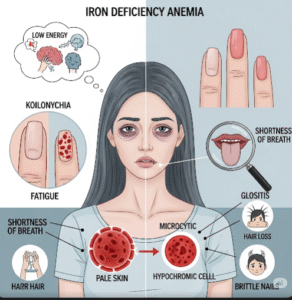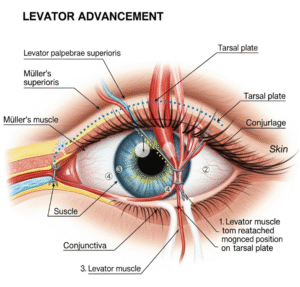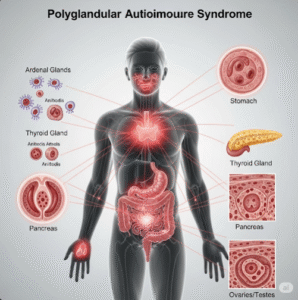Overview
Painful sex in women, medically known as dyspareunia, refers to discomfort or pain experienced during or after sexual intercourse. This condition can affect women of all ages and may have physical, psychological, or mixed causes. While occasional mild discomfort may be normal, persistent or severe pain can affect emotional well-being, relationships, and sexual health.
In Korea, gynecology and sexual health clinics offer comprehensive evaluation, diagnosis, and treatment for women experiencing dyspareunia. Early identification of causes ensures effective management and improved quality of life.
➤ Persistent pain during or after sexual intercourse
➤ Can have physical or psychological origins
➤ Early diagnosis improves sexual health and overall well-being
Key Facts
➤ Dyspareunia affects 10–20% of women worldwide at some point in their lives.
➤ Pain may occur at the vaginal opening, deep in the pelvis, or during penetration.
➤ Common causes include vaginal infections, hormonal changes, structural issues, and psychological factors.
➤ Korean healthcare providers use clinical examinations, imaging, and counseling to identify underlying causes.
➤ Early treatment prevents chronic pain, anxiety, and relationship difficulties.
What is Painful Sex (Women)?
Painful sex in women can be categorized into:
➤ Superficial Dyspareunia
➤ Pain at the vaginal opening or vulva during initial penetration
➤ Often caused by vaginal dryness, infections, or inflammation
➤ Deep Dyspareunia
➤ Pain deeper in the pelvis or abdomen during intercourse
➤ Frequently associated with uterine, ovarian, or pelvic disorders
➤ Psychogenic Dyspareunia
➤ Pain influenced by stress, anxiety, past trauma, or relationship issues
➤ May coexist with physical causes
What Symptoms Are Related To
Painful sex may present with various associated symptoms, depending on underlying causes:
➤ Burning or stinging sensation at the vaginal opening
➤ Deep pelvic or lower abdominal pain during intercourse
➤ Pain lasting after sexual activity
➤ Vaginal dryness or irritation
➤ Itching or discomfort
➤ Emotional distress, anxiety, or decreased libido
➤ Painful urination or bowel movements in some cases
These associated symptoms help clinicians differentiate between physical and psychological causes.
What Causes / Possible Causes
Dyspareunia can result from physical, hormonal, or psychological factors:
➤ Physical Causes
➤ Vaginal infections: Yeast infections, bacterial vaginosis, or STIs
➤ Vaginal atrophy: Thinning of vaginal tissues due to low estrogen (common in menopause or postpartum)
➤ Pelvic disorders: Endometriosis, fibroids, ovarian cysts, or pelvic inflammatory disease
➤ Skin conditions: Lichen sclerosus or dermatitis affecting the vulva
➤ Hormonal Causes
➤ Menopause or perimenopause reducing vaginal lubrication
➤ Postpartum changes affecting tissue elasticity and sensitivity
➤ Psychological Causes
➤ Anxiety, depression, or fear related to sexual activity
➤ Past sexual trauma or relationship stress
➤ Other Causes
➤ Use of certain medications, including antidepressants
➤ Insufficient foreplay or inadequate lubrication during intercourse
When Should I See My Doctor
Seek medical evaluation if:
➤ Pain persists or worsens over time
➤ Pain interferes with sexual activity or quality of life
➤ There is associated bleeding, discharge, or signs of infection
➤ Pain occurs with urination or bowel movements
➤ Emotional distress, anxiety, or relationship difficulties accompany pain
Early consultation allows accurate diagnosis, effective treatment, and prevention of chronic pain.
Care and Treatment
Management depends on the underlying cause, severity, and patient preferences:
➤ Lifestyle and Home Care
➤ Use water-based lubricants to reduce friction
➤ Engage in adequate foreplay and communication with partner
➤ Maintain good vaginal hygiene and avoid irritants
➤ Medical Treatment
➤ Antifungal or antibacterial therapy for infections
➤ Topical estrogen creams for vaginal atrophy
➤ Pain management medications for pelvic pain
➤ Pelvic floor physical therapy for muscular causes
➤ Psychological Support
➤ Counseling or therapy for anxiety, trauma, or relationship issues
➤ Sex therapy to improve communication and comfort
➤ Surgical or Minimally Invasive Procedures
➤ Removal of fibroids, cysts, or adhesions causing deep dyspareunia
➤ Treatment of pelvic inflammatory disease or endometriosis
Treatment Options in Korea
Korea offers comprehensive gynecological and sexual health care for women experiencing dyspareunia:
➤ Top Hospitals and Clinics
➤ Seoul National University Hospital (SNUH): Specialized gynecology and sexual health services
➤ Asan Medical Center: Advanced diagnostics, pelvic floor therapy, and minimally invasive surgery
➤ Samsung Medical Center: Integrated care for hormonal, physical, and psychological causes
➤ Yonsei Severance Hospital: Multidisciplinary approach including counseling, therapy, and surgical options
➤ Diagnostic Tools
➤ Clinical pelvic examination
➤ Ultrasound or MRI for structural evaluation
➤ Hormonal testing and lab analysis for infections or endocrine disorders
➤ Modern Interventions
➤ Hormonal therapy for vaginal atrophy
➤ Pelvic floor physical therapy for muscular causes
➤ Minimally invasive surgery for endometriosis or structural abnormalities
➤ Counseling and behavioral therapy for psychological contributors













